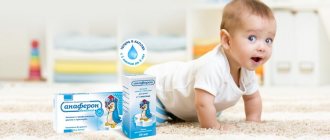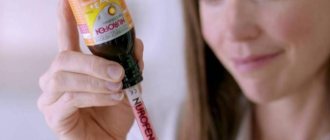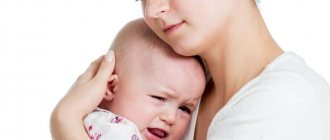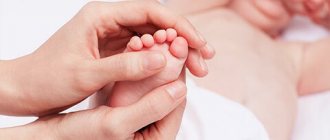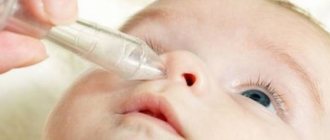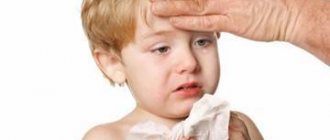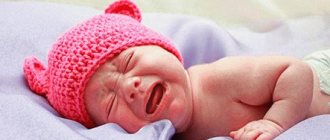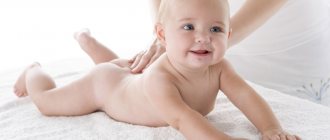Benefits of tea for children
Tea is rich in vitamins and other beneficial substances that will undoubtedly benefit the child’s body.
Tea helps improve blood circulation in a child
Beneficial features:
- regulates children's metabolism, eliminates heaviness in the stomach;
- helps with heartburn, which often occurs in young children;
- has a strengthening effect on bones, and also promotes the growth of teeth, hair and nails;
- antioxidants cleanse the child’s body of harmful substances;
- methionine normalizes fat metabolism and improves intestinal motility
- the vitamin complex contained in the drink is necessary for normal growth and development of the body;
Black tea
Pediatricians do not recommend introducing adult tea to children under one and a half years of age.
Recommendations on how to properly prepare the drink and what it should be like:
- first you need to make lightly brewed tea, light brown in color;
- It’s better to buy tea leaves in granules; you should refrain from tea bags for now;
- It is not recommended to give your child tea at night;
- The drink should be introduced into the diet gradually;
- You can only give your child fresh, warm tea.
Green tea
It is advisable for the child to dilute the tea with a small amount of milk.
In order for the drink to bring exceptional benefits to the child’s body, it is important to know and follow a few simple rules:
- the brewing time of the drink should not exceed 3 minutes;
- purchase only high-quality loose leaf tea;
- It is advisable to give it to the baby in the morning and no more than two servings per day;
- the drink must be free of impurities and flavorings.
Herbal teas
Pediatricians allow this drink to be introduced as early as 3-4 weeks of a baby’s life.
It is important to remember that the tea must be single-component and contain a minimum amount of additives. Thus, if an allergy to tea occurs, it will be possible to say exactly what exactly caused such a reaction in the body.
The widest group of children's tea drinks are preventive teas. They help strengthen the immune system and increase the body's resistance to viruses and bacteria, and they can be given to a child regardless of the time of year.
Types of children's teas
If you look at the shelves of specialized stores, children's tea is presented in a huge assortment. Each baby food manufacturer offers several products with different compositions and for different age categories.
There are the following types of children's teas:
- medicinal;
- preventive;
- sedatives.
These are single-component and multi-component products of plant origin, created to solve health problems that are relevant for every age. Experts believe that the herbal drink can be offered to children from 3-4 weeks of age. It should be a one-component product with a minimum amount of additives. This is usually tea with fennel or chamomile. These herbs rarely cause allergies, have a pronounced positive effect on the body and do not have an unpleasant aftertaste.
Both fennel and chamomile are designed to relieve spasms in the stomach and intestines, facilitate the digestion of food and the process of bowel movement. They have a laxative effect. At the same time, they have a calming and anti-inflammatory effect. They belong to medicinal teas. This group also includes drinks with mucolytic, antipyretic, and anti-inflammatory effects. They consist of leaves and fruits of raspberries, thyme, thyme, licorice root, sage, linden and other herbs.
To calm the baby, improve his sleep and reduce increased excitability, use teas with mint, lemon balm, and chamomile.
Fennel seeds are the very first phytocomponent of baby food
A very wide group of drinks consists of prophylactic teas. They are usually intended to strengthen the immune system and increase the body's resistance to viruses and bacteria. They can be drunk regardless of the season of the year and for children over 1 year old. The composition of the collection may include rose hips, linden blossom, dried wild berries and other components.
Can I make my own baby tea? If this is a monocomponent drink, then difficulty may arise only with determining the weight. On average, one filter bag can contain from 1 to 3 grams of tea. When preparing at home, it is better to take a smaller dosage and brew 100-150 ml of hot water. The herbs used must be environmentally friendly. You can collect them yourself away from the city and highways, or you can buy them at a pharmacy.
The simplest tea is considered to be dill water, which our grandmothers used. To prepare it, just pour hot water over the dill seeds and leave for 20 minutes. It is better to purchase more complex teas with several components in a store from a trusted manufacturer.
Harm and contraindications
Large amounts of tonin, which is contained in a strong drink, provoke a decrease in appetite and the appearance of problems with the digestive tract in a child
. Despite all the benefits of the drink, it contains substances that affect the child’s body:
- when consumed in large quantities, the load on the cardiovascular system and kidneys increases;
- strong tea causes excessive stimulation of the nervous system, increased heart rate, insomnia and excessively frequent urination;
- Possible memory impairment and loss of concentration.
Toxic substances entering a child’s body with a drink tend to accumulate. And in the future, this can lead to the development of allergies, interruptions in night sleep, hyperactivity and memory problems.
Contraindications to drinking tea are:
- hypersensitivity to caffeine;
- gastritis, stomach ulcer;
- high body temperature;
- insomnia;
- kidney diseases.
Parents need to remember that tea can cause insomnia in children
How to give tea to children
Each type of tea has its own age restrictions. How much tea can you give a child and at what age:
- Infants are allowed only a specialized drink. You can start a month with a dill or fennel drink. A little later, from 4 months - teas with linden and chamomile, and after 5-6 months - mint, ginger and berry.
- It is not recommended to give black tea to children under 1.5 years of age.
- Herbal teas can be given to children from 3 weeks, but first consult a pediatrician.
- Tea, like juices, is first administered in a volume of 5-10 ml (1-2 teaspoons). Subsequently, the volume is increased to 100-120 ml. The drink should be made weak and at approximately room temperature.
Green tea is best introduced into the diet when a child reaches 3 years of age.
Review of pharmacy children's teas
Children's teas can be single-component or complex. They are sold both in the form of a dry herbal mixture for brewing and in filter bags. Some of them add prebiotics and pieces of dried fruit to improve taste.
"Baiushki bye"
Tea is prescribed for children with sleep disorders.
Calming herbal tea Bayushki Bayu for children from 4 months, is available in the form of filter bags. Includes:
- lemon balm herb;
- chamomile flowers;
- fennel fruits.
To prepare, you need to brew 1 tea bag in a glass of boiling water and let it brew for 5-7 minutes. Give 2-3 teaspoons in pure form to children from 4 months to one year and 50-100 ml after one year.
Herbal tea for children “Bebivita”
The child should be given tea 3 times a day, half an hour before meals, for a course of no more than 5 days.
A line of children's teas of various directions:
- chamomile;
- fennel;
- linden blossom and lemon balm;
- chamomile, lemon balm and cumin;
- linden blossom, anise, oregano, rosehip;
- lemon balm, chamomile, fennel, parsley root.
Available in the form of filter bags of 1.5 g for brewing. You need to pour 200 g of boiling water onto the bag and let it stand for 10-15 minutes.
Children's tea "Hipp"
There are several different types of teas and age categories: from 4, 5 and 6 months of age.
Available both in the form of granules and in filter bags for brewing. Granulated contains natural herbal extracts, dried fruits and vegetables, juice extracts and vitamin C to strengthen the immune system.
There are several types and flavors of tea:
- linden blossom with lemon balm;
- apricot;
- raspberries with rose hips;
- from wild berries;
- apple with lemon balm;
- fruit;
- chamomile;
- fennel
Chamomile and fennel tea are given to children from the 1st week of life.
Children should be given the drink as follows:
- tea for newborns from the first week of life can be given, starting with one teaspoon per day, gradually increasing the volume to the daily norm of 50-100 ml. The drink is given in this volume from the 1st week to 3 months;
- from 4 to 6 months the volume is increased from 100 to 150 ml;
- at 7 to 12 months, the baby is allowed to drink 150-200 ml of tea per day.
- After 1 year, the drink is offered to the child depending on his needs.
Herbal tea for children “KROKHA”
Tea has a preventive, therapeutic effect, normalizes digestion, improves metabolism and strengthens the child’s body’s resistance to disease.
Tea is produced in filter bags of 1 g. Place the tea bag in a cup, pour 100 ml of boiling water, leave for 3-5 minutes, then delete. Children over 3 years old should take 50 ml per day, divided into 2 doses during the day. Store the remaining infusion in the refrigerator for no more than a day. Duration of treatment: 2-3 weeks. Repeated appointments are possible throughout the year.
Most popular brands
Children's herbal tea is represented by goods of domestic and foreign production. These are granulated instant products and bagged teas with a crushed composition. In addition to herbal ingredients, the product may contain the following additives, which are considered safe for babies:
- maltodextrin is a carbohydrate that ensures slow and easy absorption of the drink through the child’s digestive system, reducing the risk of allergies;
- dextrose, sucrose, glucose - a flavoring additive, which, according to some data, can increase the risk of allergies and provoke fermentation processes in the intestines;
- lactose is a safe taste improver, rarely causes allergies, and is not suitable for children with lactose intolerance;
- inulit is a probiotic supplement that helps improve bowel movements and is used to prevent constipation;
- citric acid – used as a preservative, can irritate the gastric mucosa;
- vitamin C - included in teas for children from 6 months, can cause allergies.
Babushkino Lukoshko is a domestic leader in the production of baby food
Knowing the effect of the main component and additional ones, you can choose the safest and most effective product for your child. The list of domestic tea producers includes the following brands:
- Grandma's basket;
- Leros;
- Phytosha;
- Baby;
- Teas Krasnogorskleksredstva.
The most popular products are the Babushkino Lukoshko brand. The company offers teas for different age groups from birth to 2-3 years. The range includes drinks with fennel, chamomile, anise, lemon balm, rose hips, wild berries to combat infant colic, restless sleep, weak digestion, and cough. For children from 1 month of age, a drink in filter bags made from fennel seeds is offered to stimulate the digestive glands, relieve spasms and facilitate bowel movements. Another product is chamomile tea, which is used as an anti-inflammatory and antispasmodic for digestive problems and ARVI.
The multi-component teas from Babushkino Lukoshko include the following:
Hipp tea for children
- with chamomile, thyme and anise from 4 months;
- peppermint from 4 months;
- with rose hips from 4 months;
- with mint, fennel and thyme from 5 months;
- with raspberries, apples and currants from 6 months.
The most popular product from the Krasnogorskleksredstva company is Evening Tale tea for a restful sleep. Designed for children from 6 months. The product contains soothing ingredients: mint leaves, lavender flowers, fennel and anise. It is offered to the child in the evening before bedtime.
The drink Calm Down from Fitoshi has a similar effect. This is a multi-ingredient tea for children over 3 years old. The composition includes oregano, thyme, lemon balm, cherry fruits, currant leaves.
Bayu Bai tea from Keys to Health has a mild sedative effect and improves sleep. Consists of linden and chamomile flowers, thyme and lemon balm herbs, valerian roots. Suitable for children from 2 years old.
Foreign leaders in children's food products
The list of the most popular foreign brands of baby food includes:
- Heinz;
- Hipp;
- Humana;
- Nutrition;
- Semper.
The Hipp brand offers instant and bagged teas for children from 1 month. The range includes teas:
- with fennel for children from 1 month;
- with chamomile extract and dextrose for children from 4 months;
- with fennel extract and dextrose from 4 months;
- with linden blossom, chamomile and lemon balm extract from 4 months;
- with rosehip powder, raspberries, dextrose and sucrose from 5 months;
- with lemon balm extract and apple powder, dextrose and sucrose from 6 months;
- with orange and rosehip powder, apple pieces, lemon balm, vitamin C, dextrose for children from 6 months;
- with wild berries from 6 months, etc.
Other foreign brands, including Heinz and Humana, offer a similar range with some differences. From the first days of life, you can give your child only instant herbal fennel tea Plantex from Slovenia. The rest are intended for children from 1 month and older. Which one is better to prefer, what to choose? This is a purely individual decision based on the sensitivity of the child’s body. But most drinks are well tolerated by children, do not cause negative consequences and help cope with infant problems.
Recipes for children's teas at home
Medicinal plants can be brewed individually, or teas can be prepared from several types of herbs. But it’s better to consult a pediatrician first.
Chamomile tea
Tea soothes, normalizes sleep, and is a good preventive measure for colic and colds.
Chamomile tea is allowed for children from the first days of life. Required ingredients:
- chamomile flowers – 1 tsp;
- dried mint – 0.5 tsp;
- boiling water – 200 ml.
Pour water over the herbs and let steep for 3-5 minutes.
Lime tea
Tea is a good anti-inflammatory, diuretic and anti-cold remedy.
A child can be given this drink from the first month of life, 1 teaspoon per day. To prepare it you will need:
- linden flowers - 1 tbsp. l.;
- chamomile – 1 tbsp. l.;
- yarrow – 1 tbsp. l.;
- lemon balm - 1 tbsp. l.;
- boiling water – 250 ml.
Mix all the herbs thoroughly and pour 1 tablespoon of the resulting mixture into a separate container. Pour water and let it brew for 15-20 minutes. Give the child 50 ml 3 times a day.
Thyme tea
This tea is a very effective cough remedy, which at the same time strengthens the immune system.
Tea with thyme is recommended for children over 2 years of age to treat ARVI, cough, runny nose, and flu. For preparation you will need:
- Black tea;
- dried thyme – 1 tsp;
- boiling water – 1 l.
This amount is enough for an average teapot. You can also use this tea as a preventive measure, but like any other herbal tea, you should not drink it every day.
Raspberry tea
Raspberry infusion can be given to a child to reduce fever; for throat diseases.
Raspberry tea is allowed for children from six months of age. Required ingredients:
- raspberry leaves – 1 tsp;
- boiling water – 200 ml.
Let it brew for half an hour, then strain. Give three times a day before meals. The volume depends on age. It is better for the smallest to start with 10-15 g, gradually increasing the dosage. And older children - 0.5 cups.
Nettle tea
Nettle tea has hemostatic properties, helps with anemia, improves immunity.
Allowed for children from six months. You will need:
- dry nettle leaves – 1 tsp;
- boiling water – 250 ml.
Leave for 15 minutes, then strain. Start giving 20-30 ml per day, gradually increasing the dosage.
Children's tea
Why is it needed ? Actually, you don’t even need tea, but water. The body of any person consists of 70% water, and in babies of the first year of life this percentage is even higher. Large fluid requirements in infants are met by breast milk (or breast milk substitutes). During the period of the first feeding or already weaned, a child can be given baby tea. It's not exactly necessary, but it's useful. Children's teas are preventive and therapeutic. Preventive ones contain components that increase the body's immune defense. Medicinal teas of various compositions act as carminative, sedative, anti-inflammatory, laxative, and antipyretic. Headed fennel (popularly called “Italian dill” ) has a carminative effect and relieves intestinal spasms. Chamomile, anise, cumin improve digestion, have an anti-inflammatory effect, refresh well and quench thirst. Mint, lemon balm, motherwort soothe. Teas with extracts of licorice, chamomile, thyme, and anise help against colds. Rosehip has a general strengthening effect, stimulating the immune system. Children's teas made from fruits and wild berries are primarily sources of vitamins and strengthen the children's body as a whole.
Expert commentary Most types of baby tea can be given to children no earlier than 6 months. Up to 6 months, only fennel is good (but without sugar).
Natalia Taran, pediatrician-neonatologist, researcher at the Clinic of the Research Institute of Nutrition of the Russian Academy of Medical Sciences, candidate of medical sciences: “When buying children's tea, you should opt for filter bags. It is better to choose single-component teas, for example, fennel, chamomile, mint, rosehip. You can consult your pediatrician about what is best for your baby. Do not forget that herbs have a healing effect and it is important not to overdo it. If your baby has allergies, then it is better to avoid herbal tea and replace it with homemade compote from the fruits that the child receives. Children can drink regular tea (both green and black) only after 3 years.”
How to prepare Granulated children's teas are easy to prepare: the amount of tea recommended on the package should be poured with warm boiled water, cooled if necessary, and ready to drink. Filter bags are brewed in the same way as regular tea bags. If you don’t want to buy ready-made children’s tea, you can brew medicinal herbs yourself. It can be chamomile, lemon balm, mint, dill seed, rose hips - 1 teaspoon of the dry substance is poured with a glass of boiling water (250 ml) and left for 5-10 minutes, after which the resulting drink is poured into another container so that there is no sediment in it. You can add a little fructose to this tea (no more than 1 teaspoon per 200 ml of water), as well as honey or lemon (see above about age). It is advisable to give tea to your baby warmed up to body temperature or at room temperature (22-25 degrees).
An example from a store shelf: Heinz children's teas Let's take as an example one of the brands of children's tea that is sold in Russia. Heinz baby teas with chamomile and fennel are recommended for children from 4 months. The manufacturer honestly warns on the packaging that the healthiest thing for a baby is breast milk, and not ready-made products, and that before drinking baby tea, it would be a good idea to consult a pediatrician. Why the latter is needed becomes clear if you look at the composition of the product. For example, fennel tea contains the following composition: sucrose, dextrose, fennel fruit extract, maltodextrin. Apart from the fennel extract itself, everything else is sugar. Dextrose is glucose. Sucrose is regular sugar. Maltodextrin is not a chemical, but an organic substance close to ordinary molasses; in baby food it acts as a starch substitute, adding thickness to porridges and mixtures, but compared to starch, it is absorbed by the child’s body much more easily and does not cause allergies.
In addition, it has its own pleasantly sweet taste, which means there is no need to add large amounts of sugar. When broken down in our body, it turns into glucose, and, importantly, the breakdown process takes a relatively long time. This means that the child’s body will be provided with glucose for quite a long time. Will this combination of sugars harm your child’s body? Your doctor should tell you about this. Let us note in parentheses: in general, there should not be too much sugar in a child’s diet (there is always a risk of diabetes), so from time to time it would be a good idea to check the child’s blood for sugar.
